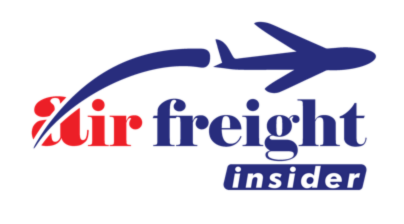Airfreight Insider Daily Briefing – November 24, 2025
Good morning, logistics professionals. Today’s briefing covers a mix of operational challenges, strategic fleet changes, regulatory cooperation for sustainability, and security concerns affecting the airfreight and passenger aviation sectors. Let’s dive in.
Winter Weather Disruptions at European Airports
Blizzard-like conditions caused a temporary shutdown at Cologne/Bonn Airport on Sunday afternoon, when freezing rain forced a 45-minute halt of all flight operations to enable runway deicing. Although the interruption was brief, it resulted in scattered departure delays. Just days earlier, two passengers breached security fences at the same airport in a desperate attempt to catch a missed Wizz Air flight, prompting police intervention and renewed attention on airport perimeter safety.
Meanwhile, Eindhoven Airport had to suspend flights for several hours on Saturday evening following multiple drone sightings in the vicinity — a challenge increasingly pressing airports worldwide. Across the Baltic region, Vilnius Airport reopened Monday morning after two closures linked to repeated balloon incidents. Lithuanian authorities accuse Belarus of orchestrating these “hybrid attacks” using weather balloons to smuggle contraband, highlighting growing geopolitical tensions impacting aviation security.
Fleet Updates and New Concepts in the Airline Industry
In a significant fleet strategy pivot, Air Canada has announced its plan to phase out Boeing 737 MAX aircraft by 2028, shifting exclusively to Airbus models for its short- and medium-haul routes. This move follows a broader trend among airlines re-evaluating their narrow-body fleets amid safety perceptions and efficiency requirements.
On the innovation front, Air Cambodia became the launch customer for ATR’s new “X-Space Table” premium seat concept. This modular design can be rapidly converted into a fully-fledged business-class seat, offering regional carriers enhanced flexibility to cater to premium customers on narrow-body aircraft.
Industry Collaboration on Sustainability and Infrastructure
The European Union Aviation Safety Agency (EASA) and the International Air Transport Association (IATA) have announced intensified cooperation toward harmonizing carbon emission calculation systems. Their goal is to establish a standardized CO2 labeling system for flights, providing greater transparency for consumers and supporting the industry’s decarbonization efforts.
On the infrastructure front, a recent think tank report warns that the German government’s current special infrastructure fund falls far short of the estimated €184 billion investment needed by 2030 to modernize and future-proof the transport sector—including aviation hubs. This signals potential bottlenecks ahead unless new financing models are developed.
Security and Operational Challenges in Airspace
The U.S. National Transportation Safety Board (NTSB) has confirmed that a United Airlines Boeing 737 MAX 8 was struck by a weather balloon over Utah in a recent incident initially suspected as collision with space debris. This finding provides insights into growing challenges from unmanned and meteorological objects in increasingly busy airspace.
Meanwhile, following a Federal Aviation Administration (FAA) warning over safety concerns in Venezuelan airspace, six international carriers have suspended flights to Venezuela, underscoring risk management priorities amid geopolitical instability.
Adding to security complexities, Iberia has disclosed a significant cyberattack compromising customer data via a third-party service provider. The Spanish flag carrier has alerted affected passengers, highlighting rising cybersecurity risks in aviation operations.
Market Movements and Strategic Partnerships
In a sector-wide move underlining wider trade and supply chain consolidation, the Deutsche Verkehrs-Zeitung reports increased scrutiny and acquisition activity aimed at SME freight forwarders, suggesting ongoing reshaping within logistics service providers.
On the cooperation front, Lufthansa is set to deepen its partnership with Deutsche Bahn, including plans for integrated baggage check-in directly at railway stations. This strategy seeks to improve the seamless customer experience across transport modes.
Additionally, Chinese oil trader Unipec has signed a multi-year contract to supply 60,000 tons of kerosene to Lufthansa’s European operations—an important development as airlines negotiate complex fuel logistics in volatile markets.
Bonus Rewards and New Taxation Proposals
In the U.S., 776 air traffic controllers and technical staff who worked during the historic 44-day government shutdown have been granted a $10,000 bonus each, recognizing their critical role in maintaining safe and continuous air traffic operations during a federal impasse.
Meanwhile, political discussions in the Netherlands see coalitions pushing for a dedicated aviation tax on private jets, arguing that a relatively small affluent group contributes disproportionately to emissions. The proposed surcharge could reach up to €2,000 per passenger, reflecting growing environmental fiscal policy trends targeting luxury air travel.
Outlook
From climate-driven operational interruptions and emerging security threats to transformative fleet decisions and cross-modal transport collaboration, the airfreight and aviation sectors continue to navigate a highly dynamic landscape. Sustainability, safety, and customer experience remain front and center as the industry prepares for the challenges and opportunities ahead.
Stay tuned for tomorrow’s briefing and our daily video update for deeper insights and interviews.
— The Airfreight Insider Editorial Team
